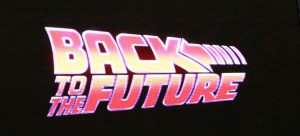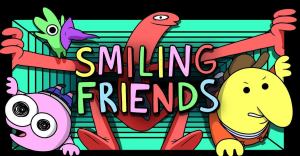The world of horror suffered a tremendous loss when George Romero passed away after a short but intense battle with lung cancer, a fight which most of his fans weren’t even aware of. Fans across the world united to share their praise of the filmmaker, posting photos of their encounters with him, and explaining how his work touched them personally.
It had been nearly ten years since Romero had last directed a film, which was 2009’s zombie film Survival of the Dead, but recent reports claimed he had written the film Road of the Dead, which was to be directed by one of his frequent collaborators. Romero might have slowed down later in his career when it came to directing, but he continued to share his various ideas with other filmmakers, inspiring them to pursue compelling stories.
Videos by PopCulture.com
Throughout his career, Romero had given us many terrifying tales, ranging from a virus causing people to embrace their primal urges in The Crazies, a serial killer who believed he was truly a vampire in Martin, or a campy love letter to horror comics of the ’50s in Creepshow. Through all these successes, it’s his work in the zombie genre, which has defined zombie mythology for decades, that fans will always know him for.
The filmmaker ended up making six zombie films throughout his career, but we turned to our Horror on Pop Culture Facebook followers to decide which of his first three zombie films were your favorite, Night of the Living Dead, Dawn of the Dead, or Day of the Dead.
Scroll down to see which of Romero’s first three zombie films you picked as your favorite!
3) Dawn of the Dead
Opening with a scene of a news station attempting to find an explanation for the zombie epidemic, only for the station to collapse and go off the air, Dawn of the Dead explores one of the most interesting elements of zombie films: survival.
The characters haven’t given up all hope, but they are also in no rush to find any answers. The survivors head to a mall where they feel they’ll have the most resources and most structural safety from the slow-moving hordes, allowing them to merely exist. If it wasn’t for a film like Dawn of the Dead, we’d never have The Walking Dead, which has become one of the most successful TV shows of all time for exploring the exact things that Dawn explored 30 years earlier.
Additionally, the film’s score by Goblin has become a favorite soundtrack among horror movie fans, thanks to their pulsating prog-rock rhythms.
2) Day of the Dead
Set many years after the events of Dawn, Day showed a group of survivors seeking refuge in an underground bunker. They’re well-armed with weapons to make quick work of any threat they come across, but they know they’re mostly just delaying the inevitable.
Not being content to just survive, one doctor runs a series of experiments on zombies to try to see what he can learn about the creatures in hopes of uncovering their secrets. Featuring some of the most gruesome effects seen in any of his films, Day explored themes of a collapsed society like no other and might be the bleakest of all the installments.
A core group of characters are members of the military who rule with an iron fist, a concept which was explored in 28 Days Later, and brought about themes of questioning governments when facing the extinction of humanity.
1) Night of the Living Dead
There’s no denying the impact that Night of the Living Dead left on the world of horror, causing hundreds of imitators and influencing countless filmmakers.
The original film showed a brother and sister finding themselves in the middle of a series of strange attacks, causing them to seek refuge at a nearby farmhouse where they banded together with other survivors. The film shows the small group of people turning on one another as they try to cope with the bizarre and terrifying occurrences happening outside their walls, which would become a thematic staple for many zombie films.
An independent filmmaker with a minuscule budget, Romero cast African-American actor Duane Jones in the lead role, with the director having often said it was because he was the best actor available for the price, regardless of race. However, the ways in which the film mirrored racial politics in America cannot be denied, with writer/director Jordan Peele often citing the film as a major influence when making Get Out.
MORE NEWS:








